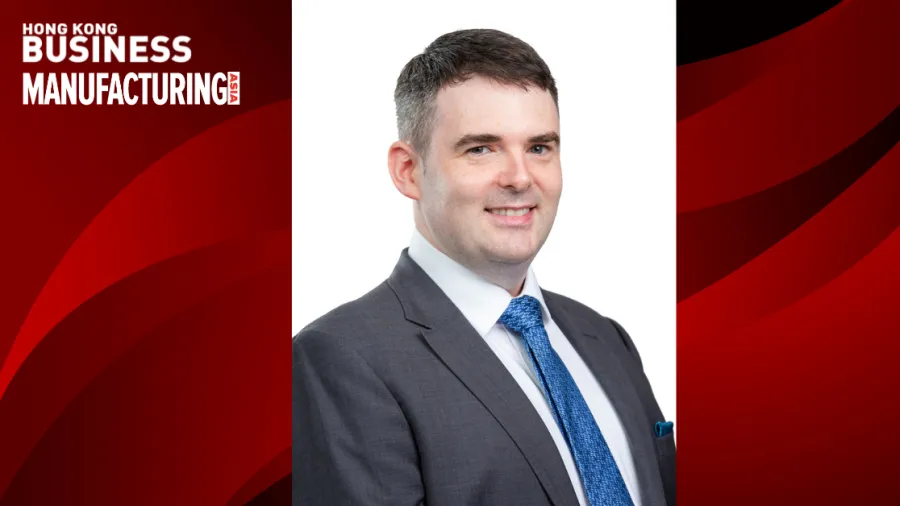
Businesses must invest in digital transformation to allay challenges
Digitalisation reduces operating costs, streamlines inefficient manual processes, says Baker Tilly director.
Ryan Swann is a director in the audit and assurance team of Baker Tilly Hong Kong and handles diverse clients from small and medium-sized enterprises in Hong Kong to large multinational groups.
Ryan’s expertise lies in being the principal auditor under HKSA600 for large group audits of international clients in key industries and sectors including freight and logistics, automotive, food and beverage, information technology, and funds and licensed corporations. His duties include conducting audits, financial due diligence, and financial model reviews.
In 2017, Ryan was awarded Baker Tilly International’s “Young Accountant of the Year” for his contribution to the company’s network and service to clients.
He currently sits on the Global Focus Steering Group and Chairman of the Asia Pacific Audit and Assurance Committee of the company, as well as the Young Members’ Committee of the Institute of Chartered Accountants in England and Wales in Hong Kong.
Having been invited to be a judge in the HKB Made in Hong Kong and Designed in Hong Kong Awards, Ryan took a few minutes to respond to questions regarding the challenges that organisations today face and the measures companies are taking to thrive in the current business environment.
Can you explain your role at Baker Tilly?
I predominantly handle the audits of multinational groups preparing consolidated financial statements in accordance with Hong Kong or International Financial Reporting Standards. These audits require communication across borders with group management, local auditors, and local management teams.
The international exposure obtained in Hong Kong has also allowed me to take on some rewarding roles within the Baker Tilly International network. I am a member of our global audit methodology committee which develops and enhances the global audit methodology used by Baker Tilly International. I am also currently the Chairperson of the Asia Pacific Audit and Assurance Committee for Baker Tilly International, which brings together our member firms in the region to work on various initiatives to increase collaboration and development within the audit service line.
Despite my international exposure, I still work with a number of Hong Kong businesses in a range of industries, including food and beverage, asset management, manufacturing, and not-for-profit. Many of these are small and medium-sized enterprises and I enjoy working with the owner-managers to help develop their business so they can achieve their objectives.
What do you think are the challenges that entrepreneurs and manufacturers are experiencing amidst the pandemic and the acceleration of digital transformation?
The pandemic created a very challenging environment both from an economic perspective and an operational perspective. During the pandemic, demand for certain goods and services have dropped or were impacted by measures implemented to control the spread of the virus. In addition to this, supply chains have been disrupted and this has impacted the operational side of many businesses.
The next challenge likely to be faced by most businesses is rising inflation which is increasing the cost of production. Not all businesses have the capacity to absorb these higher costs; therefore, this may lead to the need to increase selling prices which could affect consumer demand.
One method of creating cost efficiencies is through digitalisation. A number of businesses have needed to go through some sort of digital transformation in order to continue to operate throughout the pandemic. Digitalisation provides a good opportunity for businesses to reduce operating costs inherent in inefficient manual processes. Businesses will need to invest capital into the digital transformation process but due to the acceleration of digital transformation during the pandemic, hopefully, the cost of digital transformation will start to reduce and be more accessible to all businesses.
How has the pandemic affected entrepreneurs, particularly small and medium-sized businesses in Hong Kong? What trends did you see that companies leveraged to keep themselves afloat during the crisis?
At the start of the pandemic, there was a lot of uncertainty regarding COVID-19 itself, the ability to develop a vaccine, how long it will last and what will be the impact on businesses and economies.
Certainly, small and medium-sized businesses have shown themselves to be resilient, agile, and creative in order to keep themselves afloat. A number of businesses acted quickly to assess the changing environment and how it was going to impact their routine operations. Some businesses were agile enough to change their operating model in order to adapt to the new environment and ensure that they were able to continue to operate.
From a cash flow perspective, small and medium-sized businesses had to closely monitor cash levels due to the uncertainty present. Many businesses took advantage of government relief schemes, such as the Employment Support Scheme, SME Financing Guarantee Scheme, and Distance Business Scheme, to name a few.
What key criteria did you consider in selecting the winners of the Made and Designed in Hong Kong Awards?
I was really impressed to see the innovative entries made by all the candidates in this year’s awards. The entries covered a diverse range of products and they were all a great testament to the entrepreneurial sector of Hong Kong.
It was pleasing to see a number of the entries with sustainability at the heart as this is such an important topic. This did play a factor when I was casting my votes.
I also considered innovation when judging each product to see their uniqueness and creativity within their design.



















